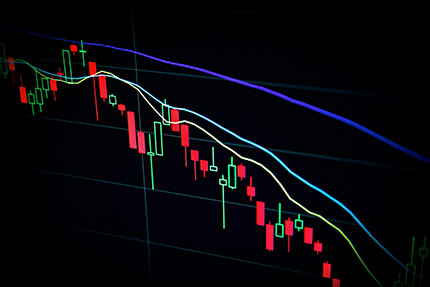The promise of decentralization has always been alluring for tech enthusiasts, and the financial world is no exception. With the rise of cryptocurrencies, decentralized exchanges have become increasingly popular among traders seeking to take advantage of this new digital market. But with any new technology comes both benefits and drawbacks that should be carefully considered before jumping in.
Understanding Decentralized Exchanges
Decentralized exchanges (DEXs) are digital platforms that facilitate the trading of cryptocurrencies in a peer-to-peer manner, without the involvement of any central authority or intermediary. This means that transactions on a DEX are not controlled by a single entity, making them less vulnerable to hacks and manipulation.
Pros for Crypto Traders
●Greater Security: With no single point of failure, decentralized exchanges are less susceptible to hacking and other security threats. This gives traders peace of mind knowing that their funds are secure.
●Anonymity: DEXs typically do not require users to provide personal information or go through a KYC (Know Your Customer) process, allowing for greater anonymity when trading cryptocurrencies.
●Lower Fees: Due to the absence of intermediaries, DEXs usually have lower fees compared to centralized exchanges, making it more cost-effective for traders.
●No Geographical Restrictions: Since decentralized exchanges are not controlled by a specific government or jurisdiction, they can be accessed and used by anyone from anywhere in the world, allowing for greater accessibility.
Cons for Crypto Traders
●Lower Liquidity: One of the main drawbacks of DEXs is their relatively low liquidity compared to centralized exchanges, which can result in slower trade execution and potentially higher slippage.
●Limited Features: Decentralized exchanges often have limited features and trading tools compared to their centralized counterparts, making it more challenging for advanced traders to execute complex trading strategies.
●Potential Risks: While decentralized exchanges may offer greater security, they are not entirely immune to risks. Smart contract vulnerabilities and other technical issues can still pose risks to traders’ funds.
Worst Mistakes For Either Type of Exchange
Both centralized and decentralized exchanges have their advantages and drawbacks, but there are some common mistakes that traders should avoid when using either type of exchange. Not securing private keys, becoming allured by scams, and falling for phishing attacks are some of the biggest mistakes that can result in significant financial losses.
Final Thoughts
No matter which type of exchange you choose, it is essential to understand the potential pros and cons and do your research before trading.
Ultimately, the choice between a DEX or CEX will depend on individual preferences and risk tolerance. However, everyone can benefit from using a free crypto portfolio tracker. By being able to monitor crypto in real-time, you can make more informed trading decisions and manage your portfolio effectively.
Moonrig.io serves as the best software to manage crypto assets for free. With over $65 Million in portfolio value tracked with Moonrig.io, it is the go-to platform for many traders. Sign up now and start tracking your crypto assets with ease. Happy trading!










